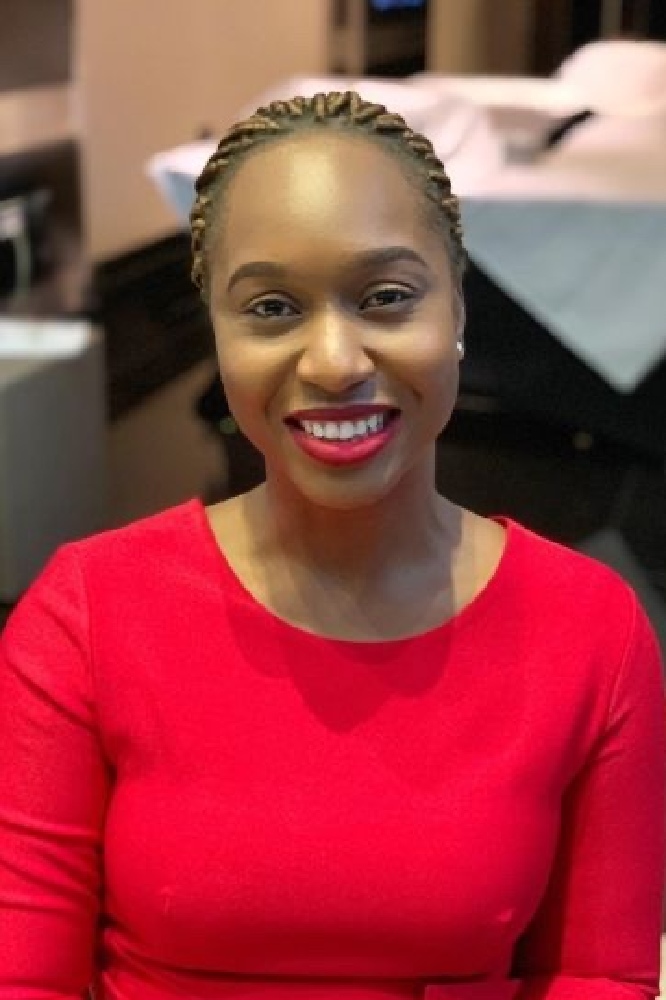Here at FemaleFirst, International Women’s Day is extremely important. It’s our mission to empower women of all backgrounds, but modern feminism remains such a white-dominated field. Of course, both white women and women of colour will share some experiences of sexism, but this year’s theme is #BreakTheBias and that means exploring intersectionality, the differences between singular experiences of sexism, and shine a light on a more diverse selection of influential women.

Bukola Adisa
We had the opportunity to speak to Bukola Adisa, the CEO and founder of Career Masterclass; a platform designed to help ethnically diverse people become successful in their fields; and we got a bit of a masterclass in black feminism.
“While I was on the fast track of my corporate career, I looked around and realised how few people there were around me who looked like me and I started to question the lack of ethnically diverse representation in senior roles,” she told us. “I set up Career Masterclass to help hard-working Black and ethnically diverse professionals to land higher on the career ladder regardless of background, circumstances or identity. It comes from my belief in mentorship and that the secrets of career growth should be available to everyone.”
She added: “I am so proud of all the success stories and amazing results – for example Georgia Wilson who attended the first Career Masterclass event as a new mum. Georgia was an audit manager in a Big 4 firm but felt stuck with no visible path for progression. She received coaching and mentorship on how to navigate her career journey and seven years on, is now an incredibly successful Group CFO of marketing and advertising powerhouse Together Group.”
Bukola’s thoughts about equality have always been a part of her. There was no momentous time in her life that led to her work now, but she was highly aware of how different she was to the rest of her “traditional West African family”.
“I used to question why my sisters and I had to do chores but my brothers were exempted and why we had to learn to cook but they didn't and why they could go to certain places we were not allowed to go to,” she recalled. “As I hit my late teens and read more widely, it became apparent to me that feminism, equality and social justice were critically important to me and would form part of my life’s work.”
When it comes to feminism, Bukola explains how intersectionality works; one of the key frameworks for understanding the varying experiences of prejudice that people face. For example, white women may experience oppression, but they still have their white privilege while black women face combined sexism and racism.
“Intersectional feminism takes into account women’s overlapping identities and experiences in order to understand the complexity of prejudices they face,” she explains. “Race, class, gender identity, sexual orientation, religion, and other identity markers can each create platforms of oppression.”
“When these identity markers overlap, people can experience what Kimberlé Crenshaw refers to as compound experiences of discrimination,” she continues. “Black women, for example, face unique experiences as both female and Black. Many black women experienced sexism while participating in the Civil Rights movement and were often shut out of leadership positions.”
“This intersectional experience of facing racism in the feminist movement and sexism in civil rights encouraged black women to call for a feminist practice that centralised their lived experiences.”
That doesn’t mean that white women should buck up and shut up about their experiences by any means, but they should make it their responsibility to educate themselves about issues surrounding race and ethnicity, have conversations with people of colour about their experiences and do what they can to advance “a culture of inclusion through positive, intentional efforts”.
“When you notice discrimination or see something that isn’t right, speak up, probe and defend where necessary,” Bukola says. “In the workplace, I would encourage all the white women in leadership roles to mentor or sponsor a more junior professional from an ethnically diverse background.”
When it comes to education, we’ve already listed some black feminist literature you need on your to-read list, not to mention some prominent black women of American literary history. But Bukola has three other important works to note:
On Intersectionality by Kimberlé Crenshaw
This is a collection of essays by the very woman who coined the term “intersectionality”, and so it is an indispensable piece of literature for anyone wanting to explore this framework of feminism.
The Memo by Minda Harts
This book provides women of colour with the tools they need to advance their careers and cope with challenges specific to women to colour. Finally! A business self-help book that doesn’t assume you’re a white middle-class male.
A Blessing: Women of Color Teaming Up to Lead, Empower and Thrive by Bonita C. Stewart and Jacqueline Adams
Going by the idea that “a blessing” is the collective noun for a group of unicorns, this book explores the importance of black women teaming up with other black women to help lift one another and erase the loneliness and isolation that they might otherwise experience as being the “only black women”.
While these books may be primarily aimed at black women, it’s a good idea for white women (and, indeed, men) to explore those topics so that they can help their black colleagues, or at least gain an understanding of their own privilege. Let’s #BreakTheBias together.
Tagged in International Women's Day feminism

